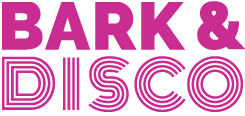Frequently asked questions
What is your training approach and methodology?
My training approach centers on positive reinforcement, utilizing rewards like food, play, interaction, and access to motivate and reinforce your dog, while also providing clarity and structure, for both species. I treat each dog and human as unique individuals, applying my extensive hands-on experience and knowledge of scientific learning theory and ethology to tailor my methods. My training is not a generic, “one size fits all” approach.
I adhere to LIMA principles—starting with least invasive, minimally aversive strategies—to effect behavior change. While I most closely identify with the positive reinforcement-based trainer label, that term only refers to one of the 4 learning theory “quadrants”, (positive reinforcement) which doesn’t fully represent how learning theory works in practice.
Together, we will devise creative ways to manage and modify the environment and events leading to problematic behavior to encourage the desired behavior. We’ll teach and reinforce differential behaviors that are incompatible with or alternatives to the problem behavior. We’ll prevent your dog from reverting to old habits while fostering new behavior patterns and guide them back to appropriate behavior when necessary. Additionally, and most importantly, we’ll explore alternative outlets for their behavior. For example, if your dog has a strong herding instinct that’s coming out in a socially unacceptable way, like chasing cars or skateboards, we might use a Collieball to channel that instinct into a controlled game, reducing unwanted behaviors.
How many sessions will I need?
There’s no set number of sessions I can recommend right away since every dog and household is unique. However, I’ll be able to give you a clearer idea of what to expect after our first meeting, based on similar cases I’ve worked with in the past.
How often should we have sessions?
This depends on your goals, your dog, and what’s happening at home. That said, here’s a general guideline I tend to follow:
- Weekly sessions are typically recommended for:
-
- Households in “crisis mode”
- Puppies or adolescents who need lots of proactive support while they’re developing
-
- Sessions every 2–3 weeks may be a good fit for:
-
- Households in a more stable place, where we want to give time between meetings to implement changes and build new habits
-
What are the expectations for owners? How much time and effort should they be prepared to invest?
What if I have questions in between appointments?
I’m available Monday–Friday and happy to answer questions by email, although it may take me up to 24 hrs to respond. Feel free to send videos if you can—they’re super helpful. If a question turns out to be more complex and needs a deeper discussion, I’ll suggest we schedule a call or cover it at our next session.
What are your prices?
You can find all of my current rates here.
Do you have training packages?
Yes! You can see the package options here.
How long have you been doing this?
I have been working professionally with dogs and clients since 2010. Before then, I gained experience by walking dogs, working in multiple doggie daycare facilities, and volunteering at Animal Haven, as well as with rescue groups to foster dogs. If you’d like to know more about my background and experience, check out my full resume and additional information about me here.
What equipment do I need?
You don’t need anything except you and your dog to get started! We might discuss different types of walking equipment, toys and treats, but as with everything, there isn’t a one-size-fits all recommendation and I’ll be helping you determine what might work best for your dog in your specific situation.
Can you help with aggression, anxiety, territorial behavior, fear/shyness, trauma responses, etc?
Yes. After nearly 15 years of working professionally with dogs, I feel competent triaging nearly any type of case or behavior issue. However, for some cases, including serious predation cases or inter-dog household aggression, I might refer you to a colleague or trainer who specializes in those areas. Similarly, while I do work with separation anxiety, I also may refer to a specialist, depending on the situation.
Here are some of the problems I can address:
- Aggression towards people or dogs
- On-leash reactivity
- Specific fears or phobias
- General anxieties
- Territorial or possessive aggression
- Leash walking, including pulling or planting
- Scavenging behavior
- Handling aggression or fears
- Puppy and adolescent training
These are within my expertise, and I’m ready to help you and your dog with these and similar challenges.
Don’t see your issue here? Book a free 10 min call and let’s chat!

